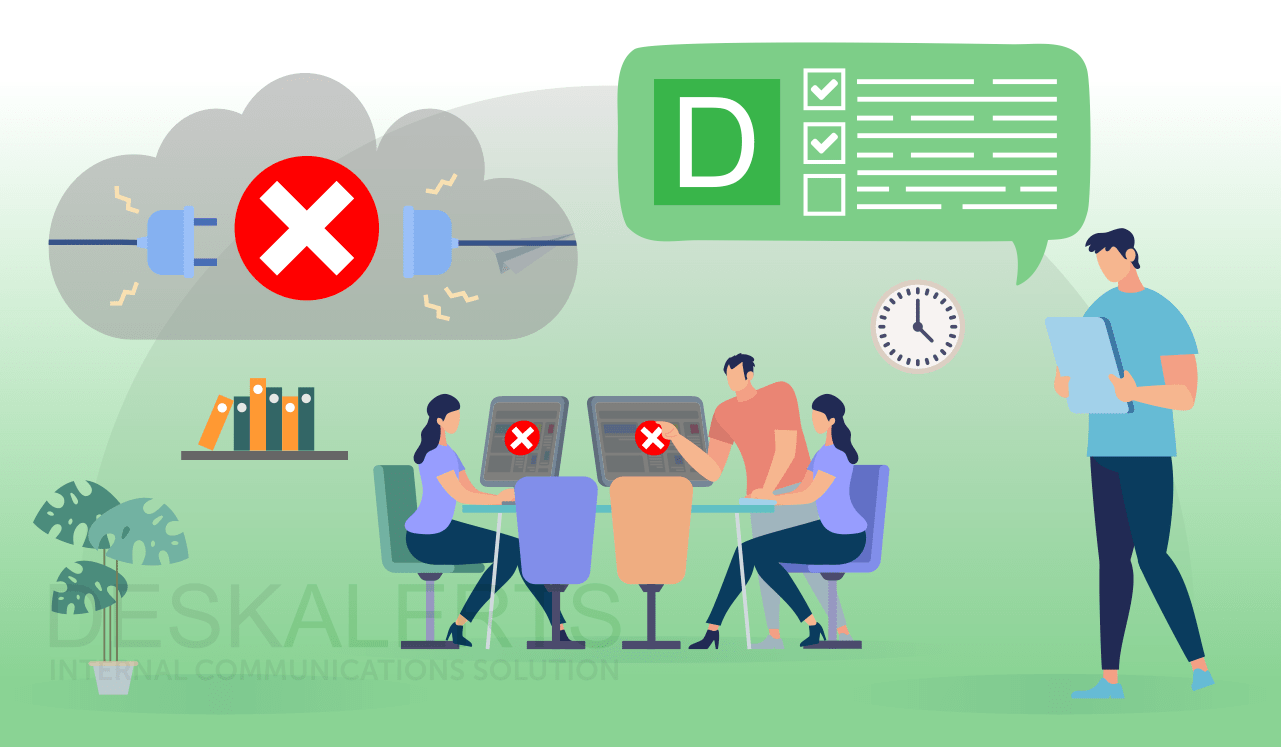Computer systems fail us from time-to-time. Unfortunately for many businesses, an IT outage can be costly in terms of profit and productivity.
There are many reasons your systems can go offline – including planned maintenance, cyber attacks, viruses, hardware failure, software glitches, electricity outages and problems with your internet service provider, to name a few.
Each situation is going to vary depending on which aspects of your IT systems are affected, the cause of the issue and the time it will take to restore it.
No matter where you fall in that spectrum, you can survive it. Here are some ways you can get through the interruption of services in one piece.
1. Have a plan
By planning ahead of time for the inevitability of a systems outage, you can get to work straight away and start enacting your plan. Take into account various scenarios and then adapt your response to suit your real world issue.
Your plan should include instructions about roles and responsibilities that should be allocated and followed until your systems are back up and running again.
2. Have scripts for your helpdesk
Once you know there is an issue, have some words that your helpdesk staff can repeat so everyone who calls about the problem will receive the same message. Better still, if you are able to, set a pre-recorded message that informs callers that you are aware of the issue and the estimated time of system restoration.
3. Communicate the outage
Let people know about the outage whatever way you can. If all your systems are down, you might need to pick up the phone or walk around the building to let people know in person.
If only some aspects of your systems are down, eg: email and internet access, you can use dedicated notification systems, such as DeskAlerts. They usually support a wide range of communiation channels. For example, you can send pop up messages to your employees’ screens advising them on the situation and providing necessary advice or instructions.
Learn more about how teams communicate planned maintenance and sudden disruptions → How IT Teams Keep Everyone Informed During Outages.
If your outage is affecting clients you may need to have messages prepared for call centers, social media and your website (if it is still functioning) to let the outside world know what’s going on.
4. Look for workarounds
Not every IT problem is catastrophic. Some can be managed more easily than others. For example, if your internet service provider goes down and staff need the internet to do their work, if possible allow them to work from home or from a café that has wi-fi.
5. Have a recovery solution
If the worst case situation should happen and you are offline for an extended period of time, you’ll need to have a strategy in place to help your business recover from the outage.
Depending on the source of your systems outage, you might need to prepare for more than just financial loss in terms of productivity and profit. You may potentially have legal issues such as failure to uphold a contract or reputational damage and loss of client goodwill.
A proactive business continuity plan will help you and members of your organization to get things up and running again.
 Caroline Duncan
Caroline Duncan






